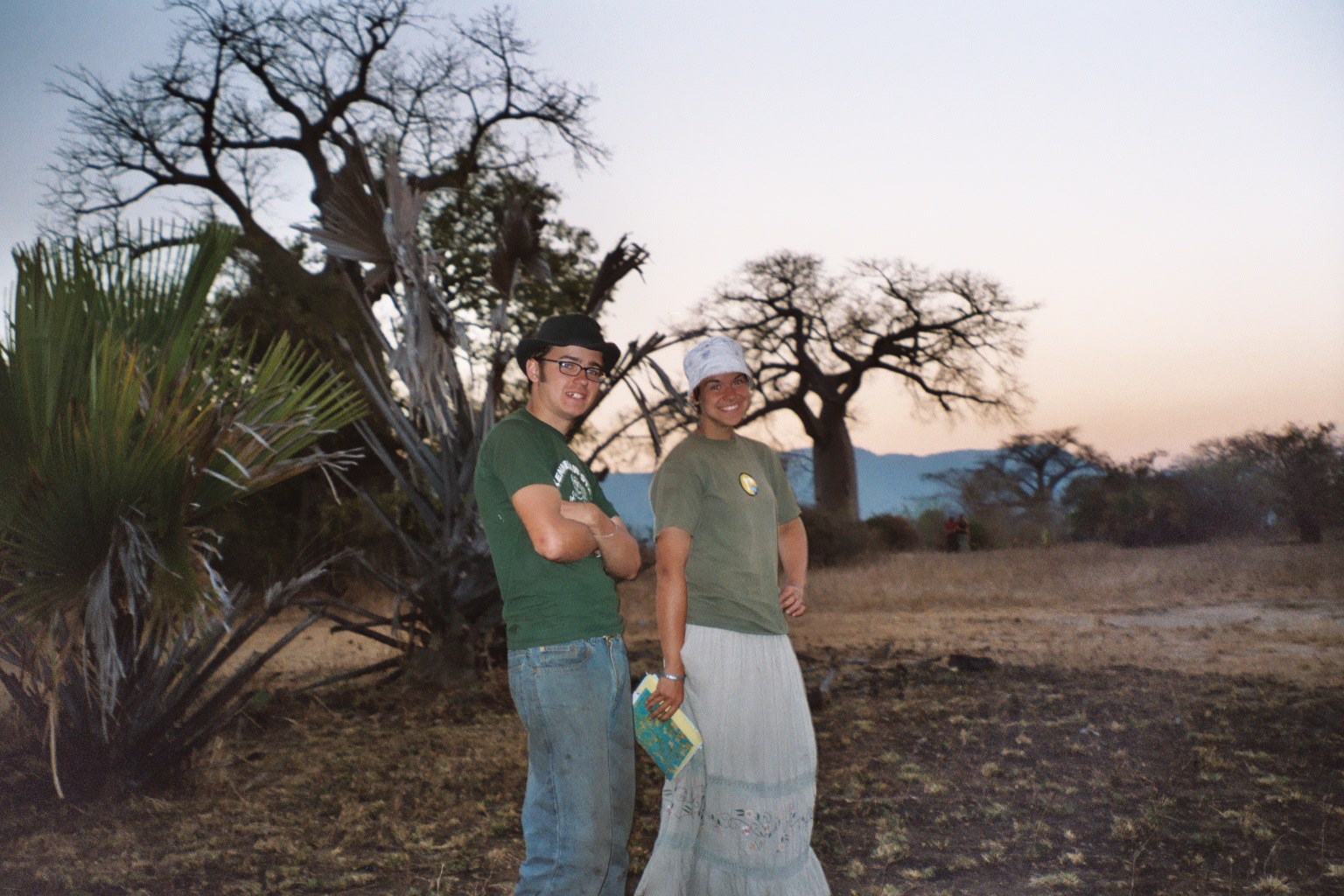It's my ten year anniversary this year. It feels like a big deal, like there should be more hubbub made over it all. In all likelihood, it will pass by quietly, hushed due to the noise of our busy life and the strain of that life on our finances.
In honor of this momentous achievement (I mean, c'mon, we made it, where's my sticker? Because some of this hurt). I'm going to take a moment to pass on the lesson we have learned as we've struggled both apart and together in our marriage.
It's deep. Epic even. We have a word for it:
Same Page.
As in: "Babe, are we on the same page here?"
As in: "Babe, I really don't feel like we're on the same page."
As in: "I love it when we're on the same page."
As in: wherever you're at, I can get a good gauge on you. We don't have to be together always (that's impossible and it would suck), we don't have to communicate all the minutiae of our day, but we do have to work to be on the same page and communicate the important details, be caring enough and kind enough to read the cliff notes, intentional enough to work off of the same big picture, move in the same general direction. Build a life together because we made a promise.
There's a lot of work that goes into a good marriage, and this part feels like it should be common sense, like it's in the vows: unconditional love, kindness, gentleness, effort, time.
Before we got to develop our shorthand, to even have a same page, we had to rewrite our books. We had to wade waist deep into our personal issues, we had to unstick the stuff that was making us stuck. We had to develop ourselves. Caleb and I have been to marriage therapy on and off for years now, to deal with the big hairy issues that flummox us. It's vulnerable, scary stuff, going into an office to talk about your most intimate personal issues, to ask for help. It certainly isn't fun, it's humbling. But it's such a good thing, it's provided us with deep insights into each other and ourselves and it's grown good fruit. These days, we go in for what we call "chiropractic alignments." Check-ups here and there so we know we're in harmony. The idea of paying someone a pretty penny so we may air our dysfunctions pressures us enough to get our house in order, get on the same page.
Once we got a decent handle on ourselves, we finally had this amazing moment where we really saw each other. Accepted each other. It wasn't so much fireworks, as the really cool, really sweet, very quiet realization that Caleb was just a person. If I let him in, he'd just be my friend and co-sojourner on the road of life. He's not all powerful or consuming, being close to him isn't scary, he's just a really good guy. Rather than control the man (as was my particular intimacy issue, yuck), I could let him be. And what a being he is, always was. I enjoyed my being, his being, and us being together. Acceptance is and was a turning point for us.
Out of that acceptance grew a partnership, the being gave way to the doing: finally, we could decide on our corporate and individual goals and head in those directions separately and together. We aren't united so much as in harmony.
On the same page.
Because we are very, very different and being "united" to me (and I realize this is a functionally incorrect definition) is an act of self-erasure. I like myself too much to be erased. Instead, I like to think of it like this: I can tell we're in harmony if we ask this question a couple of times a day, "is there anything I can do for you today?" If we are leveraging the weight of our effectiveness and productivity behind the other person's goals, then I know that we're practicing mutual submission. And then we can accomplish much together. Andy Stanley has a great sermon series that explores and explicates how mutual submission and family life were designed to work. The very best marriages turn most vibrant in light of the struggle to communicate and connect with the other. That otherness gives the self a context, a backdrop. The relationship is refining then, uplifting, nurturing, strong. Like it was meant to be.
Ours is not always, but we aim for that and we're getting there. Probably will always be trying to get there.
Being on the same page, for us, takes some very intentional, practical, deeply unromantic steps.
1) We share our lives.
The boring professional parts. I send him my household project lists, my teaching objectives and goals for the kids, I make him read my pages. He sends me a snapshot of his workload, his side project list. He makes me look at his sketches. All the mundane, boring stuff that we care about only because we care about each other. We share that intentionally.
2) We share a calendar.
At a glance, I can know where he is, what he's up to. He knows which kid is having a cavity filled. It gives our moods and days a context for those brief times over the dinner table where our worlds collide.
3) We have a system to discuss issues as they arise.
Emergencies are a phone call. Adorable and loving notes of encouragement are a text message (as are those momentary irritations that require a private gripe or two). Budget issues go in a weekly email to be discussed on Monday nights. And so on.
4) We set time apart for each other.
Intimacy isn't all bumping uglies, it's being still together, talking it all out. Listening. That's our Friday nights, usually.
This is really common sense. I feel a little silly spelling it out. Like you all don't know this. But maybe you don't. Maybe it helps. It's simple: know your other. Not just in the Biblical sense (but lots of that too, if between the leaky nursing boobs, night wakings, broke-down cars, and late nights working, you can muster it. Sometimes our sexy time is a high-five before passing out. And no, that's not innuendo. It's literally just a high-five, like look, we made it to bed. Go us.)
Be committed. Be a good companion. Be passionate together.
Be on the same page.
The whole concept of same-pageness has a particular personal meaning for us, which is why I think we like it as a moniker for the goodness of marriage. When we met on a Teen Missions International team to Malawi, Africa, in 2003, one of the requirements was word-perfect scripture memorization, if we didn't recite, word-perfect, the verses for that week, we had no free time on Sunday. And you really wanted free time on Sunday. Dyslexia and a decoding disorder run in the Peterson family, even back as far as five generations (I know this from reading Farfar's translated journals, he talks about his difficulties learning to read, how the letters wouldn't behave). Now, I didn't know this particularly pertinent bit of information when I sat down with Caleb after a 15 hour flight on our first Sunday in Africa to review the memory verses. We had to learn 40 Bible verses throughout the summer. He was horrible at this. We went over and over the same fourteen verses for hours with no significant improvement on his part. I'm sure I must have sighed heavily, wearily. We were in Malawi, finally, we could hear the lake waters washing on the shore not feet away. And here I was, looking at this scrawny, unkempt kid from Georgia who still had a baby tooth failing miserably and distractedly at his memory work.
At one point rather than reciting Isaiah 40:31 incorrectly again like he was supposed to, he said, "your eyes are really green" with a surprising intensity. A little part of me thrilled at that attention. My eyes are green and pretty too, aren't they? I thought. [note on this below]
I was always wordy and an overachieving student, so I couldn't understand his struggle and incomprehension, but we still struggled together, memorizing those verses. On the same page. Agonizing as it was.
And then I saw him work building a brick wall, doing rough carpentry, and man, that boy could work. He had skills. And he got people to work with him and have fun. I had a tremendous respect for that then and I do now. He's gifted like that. I value and esteem that.
He's just not gifted with the words so much.
Maybe this is a good definition of marriage: struggling together toward an impossible goal, supporting your other in their individual gifts, making allowances for their weaknesses while spurring them on to grow, with a little bit of flirting along the way.
One time, on this same trip, this one's a rabbit trail: he shared a melted candy bar with me when we weren't supposed to have any candy. Picture us, the middle of an African village, in the dry season, back to back pretending to read our Bibles and nonchalantly scrapping handfuls of melted chocolate off a rumpled Hershey's wrapper that Caleb had stowed in his duffel bag in his tent for a month and a half. What a silly forbidden luxury.
I love this image of us, dusty teenagers together, sharing a secret, being friends, providing the other with much needed lumbar support.

We got married two years later. And now, here I am writing on what makes it great, on the hard work of it.
Happy Anni, babe. For all the work of marriage and how often we fail spectacularly at it, I love being on the same page as you. I love your being. I love your doing. I love you.


